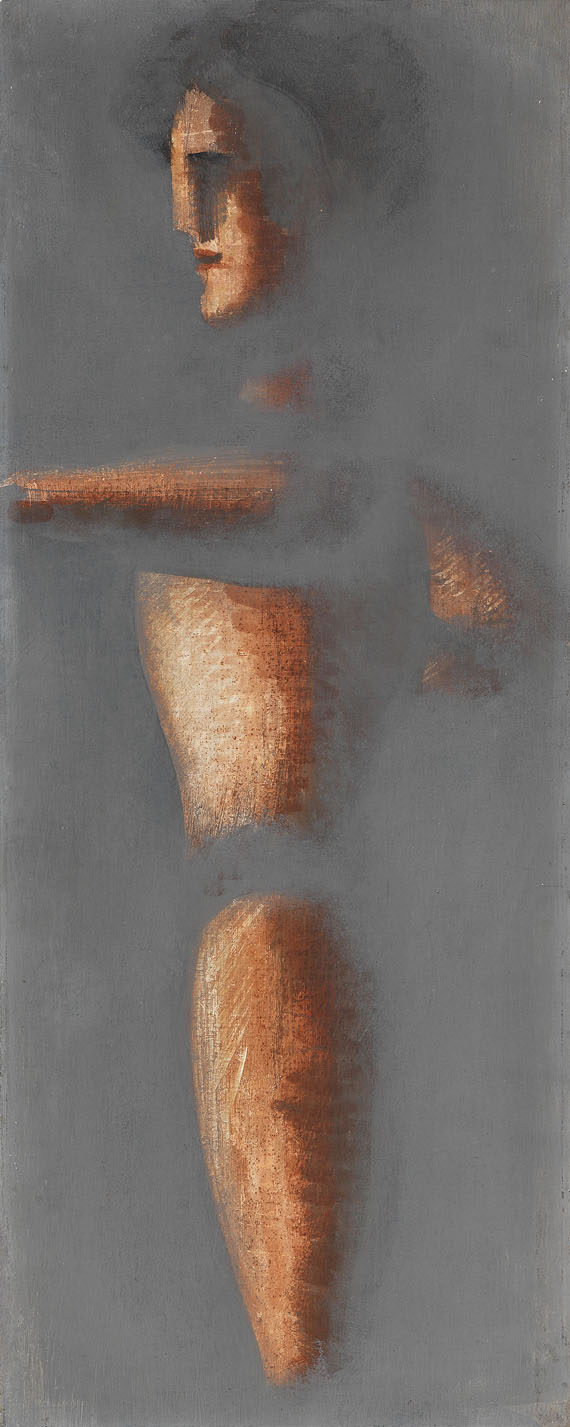Dictionary


Bauhaus Berlin
After the Bauhaus in Dessau had been closed, Mies van der Rohe decided to continue the Bauhaus as a private art school in Berlin. Besides Mies van der Rohe, only seven other Bauhaus masters went along to Berlin, among them Wassily Kandinsky and Josef Albers, which is why a smaller range of courses was offered. Mies van der Rohe expressed his program, which was now exclusively geared towards building construction, in the newspaper "Steglitzer Anzeiger" in October 1932: "Our goal is to train architects in a way so that they can master all fields of architecture, from the construction of small housing estates to urban development, that is not only in construction itself, but also in furnishing and even in textile design."
However, the Bauhaus did not have a bright future in Berlin: After the National Socialists had begun to attach more and more strings to the continuity of the Bauhaus, for example the Law for the Restoration of the Professional Civil Service, the pressure increased. It was assumed that the Bauhaus was a refuge for communists, which is why there was a house search in April 1933, leaving the rooms sealed and locked. Finally, the Bauhaus masters decided to shut the Bauhaus down in July 1933.
After the Bauhaus in Dessau had been closed, Mies van der Rohe decided to continue the Bauhaus as a private art school in Berlin. Besides Mies van der Rohe, only seven other Bauhaus masters went along to Berlin, among them Wassily Kandinsky and Josef Albers, which is why a smaller range of courses was offered. Mies van der Rohe expressed his program, which was now exclusively geared towards building construction, in the newspaper "Steglitzer Anzeiger" in October 1932: "Our goal is to train architects in a way so that they can master all fields of architecture, from the construction of small housing estates to urban development, that is not only in construction itself, but also in furnishing and even in textile design."
However, the Bauhaus did not have a bright future in Berlin: After the National Socialists had begun to attach more and more strings to the continuity of the Bauhaus, for example the Law for the Restoration of the Professional Civil Service, the pressure increased. It was assumed that the Bauhaus was a refuge for communists, which is why there was a house search in April 1933, leaving the rooms sealed and locked. Finally, the Bauhaus masters decided to shut the Bauhaus down in July 1933.
Offers
Headquarters
Joseph-Wild-Str. 18
81829 Munich
Phone: +49 89 55 244-0
Fax: +49 89 55 244-177
info@kettererkunst.de
Louisa von Saucken / Undine Schleifer
Holstenwall 5
20355 Hamburg
Phone: +49 40 37 49 61-0
Fax: +49 40 37 49 61-66
infohamburg@kettererkunst.de
Dr. Simone Wiechers / Nane Schlage
Fasanenstr. 70
10719 Berlin
Phone: +49 30 88 67 53-63
Fax: +49 30 88 67 56-43
infoberlin@kettererkunst.de
Cordula Lichtenberg
Gertrudenstraße 24-28
50667 Cologne
Phone: +49 221 510 908-15
infokoeln@kettererkunst.de
Hessen
Rhineland-Palatinate
Miriam Heß
Phone: +49 62 21 58 80-038
Fax: +49 62 21 58 80-595
infoheidelberg@kettererkunst.de
We will inform you in time.




